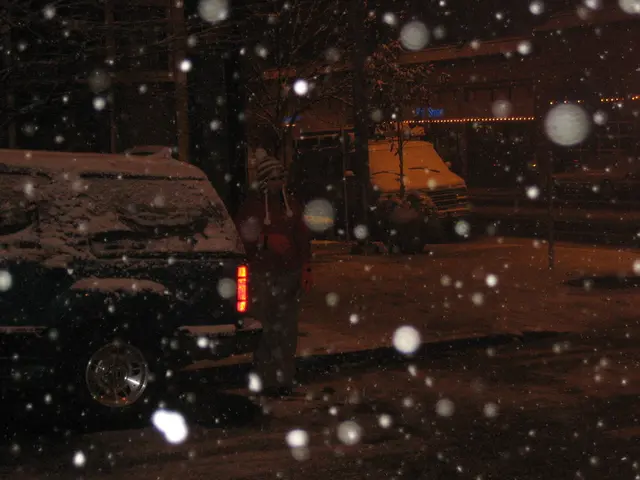Flexibility in CO2 Emission Limits for Automakers: A Breather for the Car Industry
Car manufacturers granted more leniency on CO2 emission standards by European Parliament in decision-making vote. - Car manufacturers granted less stringent CO2 emission standards by Parliament vote
In the midst of modernizing Europe's automotive sector, the EU Commission President Ursula von der Leyen has introduced a reprieve for manufacturers. They're now permitted to offset the 2022 CO2 emissions of their new cars with those from the following two years. Should they fall short in 2022, they still have the opportunities to rectify in 2026 and 2027.
This relaxation pertains to the fleet limits, referring to guidelines that dictate the maximum average CO2 emissions of new cars sold by a manufacturer. Each manufacturer is assigned an individual value, which has been steadily declining this year and is destined to hit zero by 2035, effectively phasing out new combustion engine vehicles.
Industry heavyweights such as Volkswagen and Renault have found it difficult to adhere to the stricter emission standards and lobbied for more regulatory leeway in Brussels. Failing to meet EU targets could lead to hefty fines.
The 27 EU member states are yet to seal the deal on the law amendment, but they agreed on it in majority during a Wednesday meeting. An alternative method to dodge penalties has been in place since one can form 'pools' with rivals, with an average limit applying.
Some far-right factions in the European Parliament sought to repeal the 2035 combustion engine ban, but their proposals didn't garnish majority support in a Thursday vote. The European People's Party (EPP), however, has expressed eagerness to depart from the combustion engine ban in the long term.
As the law is reviewed at year's end, this disagreement could ignite disputes in the forthcoming German government. Unlike the Union, the SPD remains steadfast in upholding the existing standards.
Key References:- EU- European Parliament- CO2- Emission Standards- Combustion Engine- Fines- Flexibility- Transition- Electric Vehicles (EVs)- Zero Emissions- Low-Emission Vehicles- Regulation- Industry Support- Automotive Sector
- The European Parliament, in collaboration with the EU Commission, has introduced a flexibility mechanism for automakers to offset CO2 emissions, allowing them to rectify shortcomings in 2026 and 2027, following stricter emission standards in 2022.
- The proposed flexibility applies to fleet limits, which are EU guidelines that dictate the maximum average CO2 emissions for new cars sold by manufacturers, with an ultimate goal of zero emissions by 2035.
- Volkswagen and Renault, among other industry heavyweights, have found it challenging to meet the stringent emission standards, leading them to lobby for more regulatory leeway in Brussels to avoid hefty fines.
- The European Parliament, during a recent meeting, agreed on the law amendment that allows for this flexibility, though it still requires final approval from the 27 EU member states.
- Some far-right factions in the European Parliament proposed a repeal of the 2035 combustion engine ban, but their proposals did not gain majority support in a recent vote.
- The transition towards electric and low-emission vehicles will likely ignite disputes in the forthcoming German government, as the European People's Party expresses eagerness to depart from the combustion engine ban in the long term, whereas the SPD remains steadfast in upholding the existing standards.







